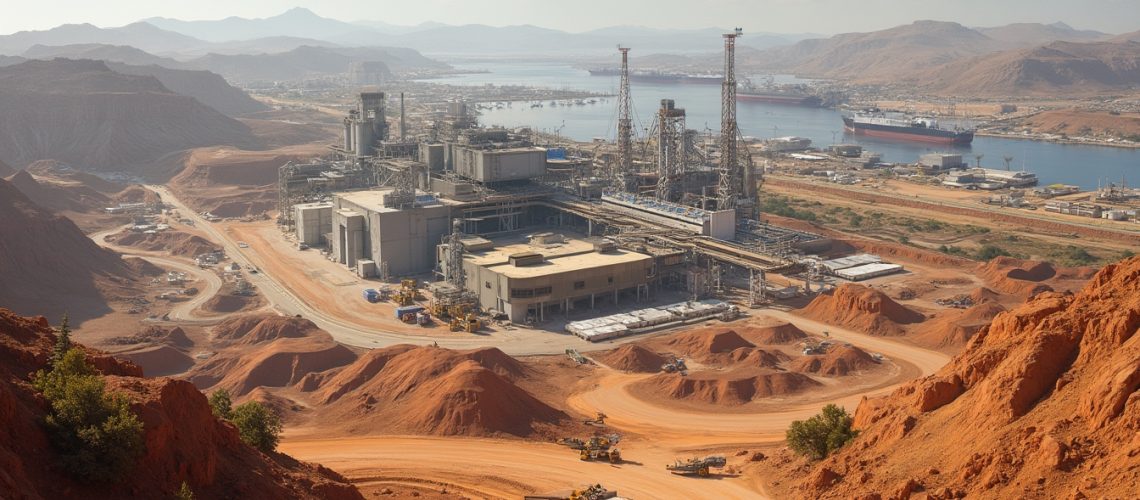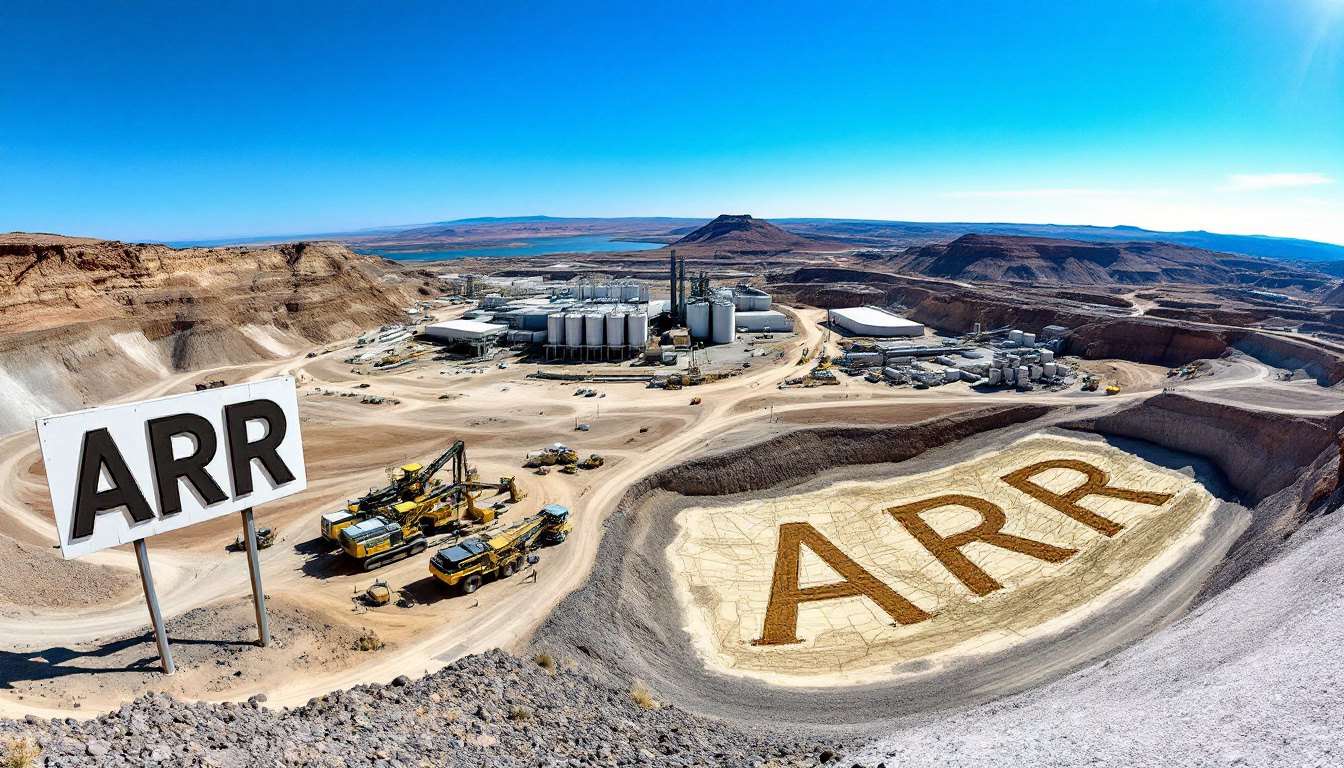What Are the Current Trends Driving African Mineral Investment?
The global landscape of mineral investment is undergoing a transformative shift, with Africa emerging as a critical nexus for strategic raw materials essential to global energy and industrialisation. Over the past decade, the continent has witnessed a remarkable surge in interest from governments and private investors seeking to secure access to its vast mineral wealth. As nations worldwide commit to reducing carbon emissions and shifting towards sustainable energy solutions, Africa’s resource potential has never been more significant.
Recent data highlights the dramatic potential of African mineral resources. Cobalt demand, for example, increased by 25% between 2020 and 2023, primarily driven by electric vehicle battery requirements and renewable energy storage solutions. In addition, southern Africa now hosts 68% of the global platinum group metal reserves, signalling a substantial opportunity for value-added processing and economic development. This shift has not only attracted investment but also triggered strategic initiatives across the continent, such as advanced lithium production, which are essential to fuelling the green energy revolution.
The economic impact is profound. In key regions like the DRC and the Zambian copperbelt, mining’s contribution to GDP has escalated from 5% in 2000 to 15% currently. This surge demonstrates the sector’s increasing significance, as countries rapidly move beyond merely extracting raw materials. Today, there is a strong emphasis on transforming mineral wealth into sustainable economic growth, and sound policies are being made to support local beneficiation and downstream processing. These developments position Africa at the forefront of a global shift toward more resilient and value-driven economies.
How Do Critical Minerals Fuel Domestic Industrialisation?
Critical minerals represent far more than just export commodities – they are potential catalysts for comprehensive economic transformation. By processing minerals locally, countries can generate exponentially higher economic value. For instance, aluminum smelting produces six times more value than raw bauxite exports, while local processing of cobalt may reduce transportation costs by up to 40%. Such multiplier effects are central to fostering robust manufacturing sectors and secure supply chains.
Some key points in this transformative process include:
- Developing downstream industries that capitalise on processed minerals.
- Creating a robust pipeline of skilled jobs and technological innovations.
- Enhancing domestic capabilities in research and development for advanced materials.
According to the International Council on Mining and Metals (ICMM), every ton of locally refined copper generates approximately $8,500 in downstream manufacturing – compared to just $2,800 when exported as concentrate. This impressive multiplier effect underscores the importance of local processing as a strategy for economic growth. Local initiatives, such as Nigeria’s aluminium rolling mill, have managed to reduce can stock imports by 30% annually. Similarly, South Africa is leading innovative projects like its Hydrogen Valley, where platinum group metals are being harnessed to develop advanced fuel cell technologies and cleaner energy solutions.
Another important strategy emerging in this domain is seen in ferroalloy sector development initiatives, where countries are not only leveraging their mineral resources for export but also nurturing domestic industries that add significant value. These initiatives highlight the step-change in using mineral resources for broader industrial and economic development, aligning with global trends towards cleaner, more sustainable production methods.
What Are the Key Policy Drivers Supporting Value Addition?
Successful mineral beneficiation requires a comprehensive policy framework that addresses both economic and operational dimensions. A critical area is energy infrastructure, which significantly influences the cost structure of mineral processing. The price difference between energy sources is stark: hydroelectric power can be produced at as low as $0.03 per kilowatt-hour, while diesel generation may cost up to $0.11 per kilowatt-hour. This disparity underscores the importance of strategic energy investments designed to support efficient and competitive local processing operations.
Regulatory reforms are equally important. For example, Rwanda has managed to reduce project approval timelines by 54% through streamlined mining codes, while Ghana has implemented innovative mineral development funds. In Ghana’s model, 30% of mining royalties are directly allocated to infrastructure bonds, creating a sustainable reinvestment mechanism that fuels ongoing development. These policy innovations not only enhance competitiveness but also ensure that the economic benefits are broadly shared across society.
Furthermore, workforce development is emerging as a crucial pillar. Certification frameworks, technical training, and education programmes are being implemented to create a skilled pool of local workers. A recent study suggests that one expatriate technician can effectively train up to five local workers under new visa regulations, which is a testament to the effectiveness of targeted skill transfer. This ongoing investment in human capital will be a vital driver of industrialisation and economic resilience.
Efforts in this arena also include partnerships that focus on critical minerals policies to foster innovation and coordination among different stakeholders, ensuring that regulatory frameworks remain agile and responsive to global market dynamics.
Why Are Regional Corridors and Cross-Border Collaborations Essential?
Regional corridors are steadily reshaping the African mineral landscape by creating integrated economic zones that transcend national boundaries. A prime example is the Lito Corridor, spanning Zambia, the DRC, and Angola. This collaborative initiative has demonstrated potential freight cost reductions of 22% and enhanced energy sharing capabilities, thereby streamlining regional operations. Such efforts are crucial for overcoming traditional barriers that have historically hindered seamless trade and investment across borders.
The benefits of cross-border collaborations include:
- Reduced operational costs through shared infrastructure and logistics.
- Accelerated economic scale by pooling resources across nations.
- Simplified regulatory environments that facilitate smoother transactions.
- Enhanced technological and skills transfers between regions.
Standardised innovations, such as harmonised rail gauges and VAT protocols under the African Continental Free Trade Area (AfCFTA), are further advancing these collaborative efforts. In turn, these initiatives enhance market access and competitiveness for local industries. In addition, a growing emphasis on sustainable practices is evident in areas such as chilean mining initiative, reflecting a broader trend where responsible mining practices are recognised as integral to long-term economic and environmental viability.
What Strategic Challenges Must Be Addressed?
Despite its immense potential, the African mineral sector still faces significant challenges that need to be addressed to ensure sustainable growth. One of the most critical issues is energy cost mitigation. Hybrid solar-diesel plants, which have been deployed in several regions, show promise by reducing operational expenses by as much as 34%. These plants are ideally suited to the dynamic energy landscape in many African regions where reliable and cost-effective energy sources are scarce.
Key challenges include:
- Addressing the volatility of global commodity prices.
- Enhancing governance and managing corruption risks.
- Upgrading ageing infrastructure and ensuring efficient transportation networks.
- Continuously refining policy frameworks to adapt to rapid global changes.
Governance indicators and corruption risk assessments remain essential for investors. Transparent regulatory frameworks not only mitigate risks but also build investor confidence. Clear policies and robust implementation measures are vital if African nations are to fully capitalise on their mineral wealth. In parallel, the development of comprehensive safety protocols, such as those detailed in efforts aimed at diesel emissions safety, are crucial for ensuring that mining operations do not compromise the welfare of local communities or the environment.
Building a Sustainable Mineral Economy
Africa’s mineral potential extends far beyond raw material extraction. By shifting focus to value addition, regional collaboration, and strategic policy development, the continent is poised to transform its natural resources into a powerful engine of economic growth and industrial development. The next decade will be pivotal in determining whether African nations can successfully translate their vast mineral wealth into sustainable, diversified economies that not only benefit local populations but also contribute meaningfully to global industrial supply chains.
The path forward involves:
- Continued refinement of strategic policies that promote domestic processing.
- Investment in modern infrastructure and energy efficient technologies.
- Implementation of transparent and agile regulatory frameworks.
- Commitment to skills development and technological innovation.
As the African mineral sector evolves, it will be essential to maintain a dual focus on ensuring economic viability and promoting environmental and community well-being. The integration of cutting-edge technology and progressive energy strategies is expected to further enhance operational efficiencies. Ultimately, the goal is to create a resilient ecosystem that not only attracts significant investment but also drives regional prosperity and global competitiveness.
By leveraging internal strengths and forging international partnerships, stakeholders across the continent are positioning Africa as a leader in the global move towards sustainable industrialisation. This holistic framework suggests that Africa is ready to embrace a future where its mineral wealth underpins a dynamic and forward-thinking economy, enriched not only by natural resources but also by innovative policy and strategic collaboration.
Are You Ready to Maximize Your Investment Strategy?
Unlock the power of real-time insights into Africa’s burgeoning mineral opportunities with Discovery Alert. Experience fast, AI-driven notifications that simplify investment decisions and enhance your portfolio. Join now for a 30-day free trial at Discovery Alert and harness these exceptional prospects today.







